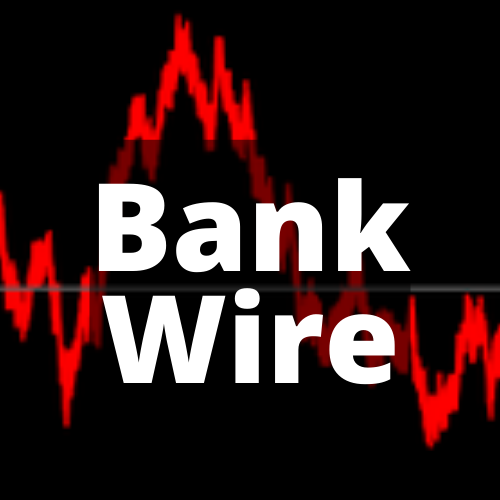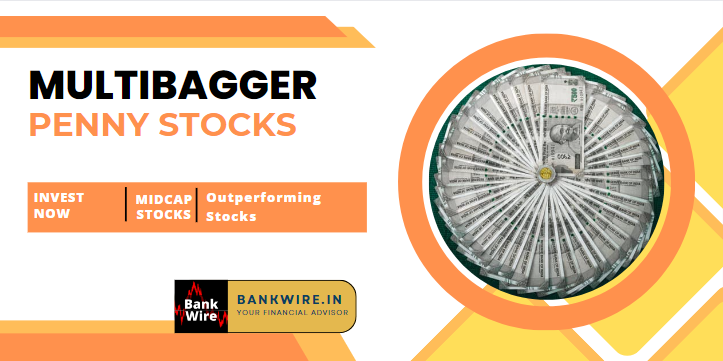
Exploring Fixed Deposit Benefits Under Section 80C
Investing For Your Future: How Fixed Deposit/Term Deposits Under Section 80C Can Help You Reap Higher Returns
Fixed Deposit Benefits: Investing in the stock market can be a risky endeavor and finding the right financial products to invest in can be overwhelming. But have you ever considered investing your money in fixed deposits or term deposits under section 80C to reap higher returns? In this article, we’ll explore how fixed deposits/term deposits under Section 80C can help you achieve your long-term financial goals.
Table of Content
- Introduction to Fixed Deposits and Investment Options under Section 80C
- Benefits of Investing in Fixed Deposits
- How to Calculate Returns from Fixed Deposits?
- Terms & Conditions of Investing in Fixed Deposits
- Tax Implications of Investing in Fixed Deposits
- Alternatives to Investing in Fixed Deposits
- Conclusion
Saving money for the future is an important part of financial planning, and it’s made even easier when you understand how fixed deposits under Section 80C can help you reap higher returns. Read on to find out more about this innovative way to save money and get the most out of your investments.
Also Read | Bank Deposit Schemes, Compare Fixed Deposit, Recurring Deposit with PPF, Sukanya Samriddhi Yojana
Its Free | Click Here to get free personalized help on your portfolio
Introduction to Fixed Deposit Benefits and Investment Options under Section 80C
A fixed deposit (FD) is a financial instrument provided by banks or other financial institutions in which an individual can deposit a sum of money for a specified period of time. The account holder earns interest or say fixed deposit benefits at a predetermined rate during the tenure of the deposit.
Investment options under Section 80C of the Income Tax Act offer tax benefits to individuals who invest in them. Equity-linked saving schemes (ELSS), public provident fund (PPF), life insurance policies, national savings certificates (NSCs) and certain specified bank deposits are some of the investment instruments that come under this section.
The interest earned on FDs or fixed deposit benefits are taxable, but the investor can avail of certain deductions and exemptions under Section 80C to reduce their tax liability. Investments in ELSS, PPF and life insurance policies qualify for deduction under this section.
Investors can choose to invest in FDs for different tenure periods as per their needs and objectives. Short-term FDs have a tenure of up to one year, while long-term FDs have a tenure of five years or more. The interest rates offered on FDs vary depending on the tenure chosen by the investor.
Fixed deposits are considered to be one of the safest investment options as they provide guaranteed returns. They are also an attractive option for investors looking for higher returns as compared to other fixed income instruments such as bonds and debentures.
Read Also | How to open Sukanya Samriddhi Yojana account and its benefits
Benefits of Investing in Fixed Deposits
When it comes to investment options, fixed deposits offer a number of benefits that make them an attractive choice for many people. Here are some of the main benefits of investing in fixed deposits:
- Safety and security: Fixed deposits are one of the safest investment options available, as your money is guaranteed by the government. This means you can rest assured knowing that your capital is safe and you will get your interest payments on time.
- Predictability: With a fixed deposit, you know exactly how much interest you will earn on your investment upfront. This makes budgeting and planning for your future easier, as you can predict with certainty how much your return will be.
- Higher returns: Fixed deposits typically offer higher interest rates than savings accounts, meaning you can earn more on your investment over time. This can make a big difference when it comes to growing your wealth over the long term.
- Flexibility: Many banks and financial institutions offer flexible terms on fixed deposits, so you can choose a tenure that suits your needs. This flexibility means you can access your money sooner if you need to, without incurring any penalties.
- Tax benefits: In India, interest earned on fixed deposits is taxable at 10%. However, this tax can be avoided if the interest is reinvested in another fixed deposit account (known as a ‘compounding FD’). This allows you to grow your wealth even faster, while still minimizing your tax liability.
Explained | Public Provident fund (PPF) account, how to open!
How to Calculate Returns from Term Deposits and Fixed Deposits Benefits?
When it comes to making investments, fixed deposits (FDs) are a popular choice among Indian investors. This is because they offer safety of capital and a higher rate of return as compared to other options such as savings accounts.
However, many people are not aware of how to calculate the returns from their FD investment. In this article, we will take you through the steps involved in calculating returns from an FD account.
The first thing you need to do is find out the interest rate offered by the bank on FDs or how much fixed deposit benefits you are going to reap. This information is readily available on the bank’s website or you can simply ask the customer care executive.
Open Free UpStox Demat account/ Trading Account
Open Free Sharekhan Demat Account / Trading Account
Once you have the interest rate, multiply it with the amount you have deposited in your FD account. This will give you the interest earned for one year.
Now, divide this amount by 12 to get your monthly interest income. For example, if you have deposited Rs 1 lakh in an FD account that offers an interest rate of 8%, then your annual interest income will be Rs 8,000 (1 lakh x 8%). Dividing this by 12 gives you a monthly interest income of Rs 666 (8,000/12).
Read Now | How Public Provident Fund is a best tool to Save Income Tax
Terms & Conditions of Investing in Fixed Deposits
When you invest in a fixed deposit, you are essentially agreeing to leave your money untouched for a set period of time – usually between one and five years. In return for this, the bank or building society will agree to pay you a set rate of interest. This means that you can earn a higher return on your investment than if you had left your money in a savings account.
However, there are some things to bear in mind before investing in a fixed deposit. Firstly, make sure you understand the terms and conditions of the account, as there may be penalties for withdrawing your money early. Secondly, remember that the rate of interest on fixed deposits is usually lower than the rate of inflation, so your money may not keep pace with rising prices over the long term.
If you’re happy to take these risks into account, then investing in a fixed deposit could be a good way to boost your savings. Just make sure you shop around for the best rates and don’t tie up all your cash in one account, as this could leave you short if an emergency arises.
Read More | Cyber Fraud: Banking frauds, Recover lost money |Cheque Bounce Meaning, consequences, Civil Case
Tax Implications of Investing in Fixed Deposits
When it comes to investing, one of the key considerations is tax implications. This is especially important when it comes to fixed deposits, which are often subject to different tax rules than other investment products.
With a fixed deposit, your money is loaned to a financial institution for a set period of time, usually at a higher interest rate than a savings account. The interest earned on the deposit is typically taxable, but there are some exceptions.
For example, in India, any interest earned on a fixed deposit that is held for more than five years is exempt from taxation. This can make fixed deposits an attractive option for long-term investors who are looking to maximize their after-tax returns.
There are also some special tax rules that apply to certain types of fixed deposits, such as those held in Registered Retirement Savings Plans (RRSPs) and Tax-Free Savings Accounts (TFSAs). Interest earned on these types of accounts is typically not taxed until the funds are withdrawn.
If you’re thinking about investing in a fixed deposit, be sure to consult with a financial advisor to discuss the potential tax implications and how they may impact your overall return on investment.
Also Read | Financial Planning for your child’s Education |Know All Banks in India, MICR, IFSC, Branch
Alternatives to Investing in Fixed Deposits
There are plenty of alternatives to investing in fixed deposits. Here are a few:
- Savings Accounts: A savings account is a type of bank account where you can deposit money and earn interest on the balance. Many banks offer promotional rates on their savings accounts, so it’s worth shopping around to find the best deal. Read About Saving Account Cash deposit limit for individual
- Money Market Accounts: A money market account is similar to a savings account, but usually offers higher interest rates. These accounts typically require a higher minimum balance than savings accounts, but may be worth considering if you’re looking for higher returns on your investment.
- Certificates of Deposit: A certificate of deposit (CD) is a type of time deposit with a bank or credit union. You agree to keep your money in the account for a set period of time, usually between six months and five years, in exchange for earning a higher interest rate than you would on a regular savings account.
- Individual Retirement Accounts: An individual retirement account (IRA) is an investment account that offers tax benefits to encourage saving for retirement. There are two main types of IRAs: traditional IRAs and Roth IRAs. Traditional IRAs offer tax-deferred growth on your investments, meaning you don’t pay taxes on the earnings until you withdraw the money in retirement. Roth IRAs offer tax-free growth on your investments, meaning you never pay taxes on the earnings as long as you meet certain conditions when withdrawing the money. Click to read When should you start retirement planning and How?
Read More | Banking Term and technical words you must know |All Government Schemes in India
Conclusion
Investing in a fixed deposit or term deposits under Section 80C is an excellent way to ensure that you reap higher returns for your future. Not only does it provide guaranteed returns, but it also offers security and flexibility when managing your finances. By taking advantage of the tax benefits associated with this investment option, you can maximize your savings while minimizing the amount of taxes owed on them. Now that you know how a fixed deposit/term deposit under Section 80C can help you achieve financial success, why not invest today?
- Top 10 Best Stocks to invest in 2024 for a year
- Top 10 Best Penny Stocks under 20 Rs. in India for 2024
- Stock Market Crash Today; Steps to recover your loss
- Top 10 Stocks to invest in 2024 Under 300 Rs
- Top 10 Stocks To Invest Under 100 Rs
- Top 10 Best Personal Loan Apps for low CIBIL Score
- Top 10 Penny Stocks to invest under Rupee 1
- Top 10 Best Penny Stocks under 10 Rs. in India for 2024
- Top 10 Best Dividend Stocks to invest
- Top 10 Stock broking companies and mobile trading app in India
- Top 5 Life Insurance Companies in India and List of claim settlement ratio, Tips to choose a best life insurance company
- Top 10 Stocks to invest
Read Category-wise posts
Banking | Bank Account | Bank Deposit Schemes | Loans | Bank Cards | Credit Cards | Debit Cards | Search IFSC & MCLR Code | Insurance | Bank Jobs and Exams | Stock Market | GST | EMI Calculator




